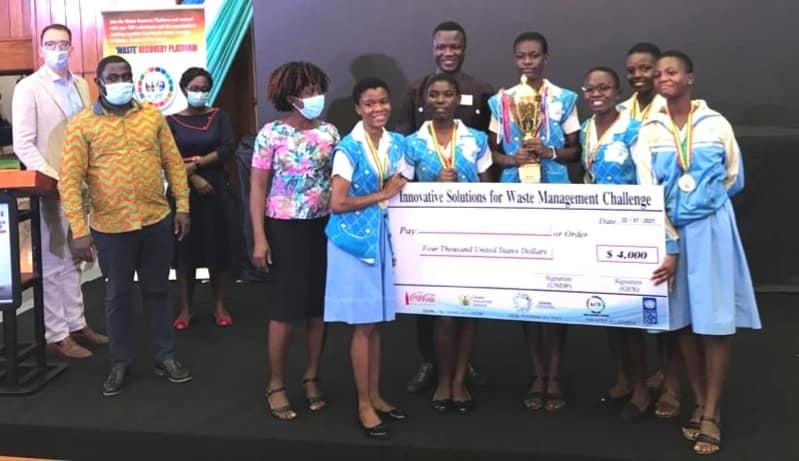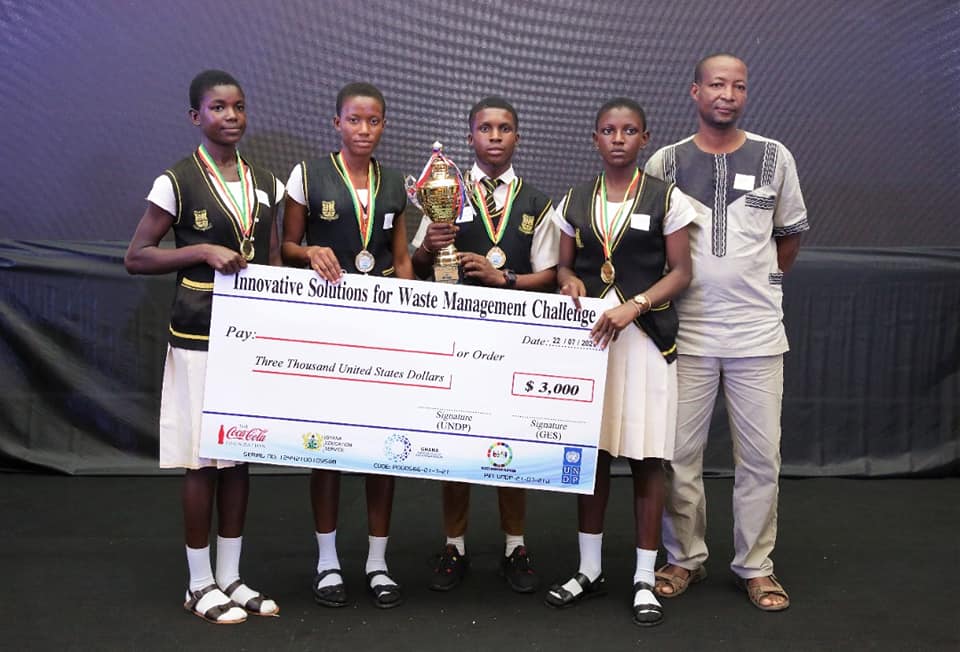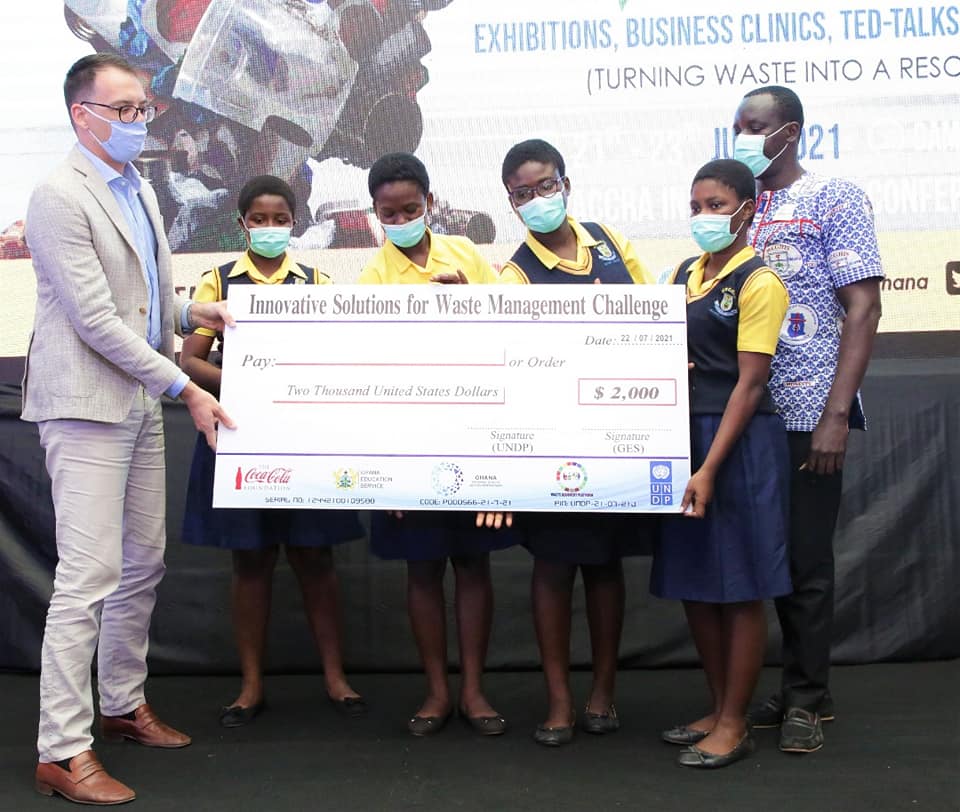Students representing the St. Catherine Senior High School at UNDP Ghana’s Waste Innovation Challenge for High Schools have received $4000 to support their waste management project after emerging winners.
The United Nations Development Programme (UNDP), with funding from the Coca-Cola Foundation (TCCF), invited applications from second-cycle schools to submit proposals on project ideas to address waste management challenges in Ghana.
St. Catherine SHS submitted a project which seeks to empower students and teachers to manage domestically generated waste.
Sewage from students’ bathhouse will be connected to a receptacle, so the school can provide for itself enough water to irrigate the school garden and promote tree-planting in the school.
Also, the solid waste materials will be transferred from the school’s kitchen and compound into a compost pit to serve as manure. This will be used to support the growth of vegetables and trees in the school.
The 1st runner-up, Obuasi Senior High Technical School, received an amount of $3000 to support their innovation to build a prototype solar-powered waste segregation bin.
The project seeks to address the challenges associated with waste management in the school and beyond.
This encourages the reuse and recycling of waste collected from the waste bins as the bin will separate waste into (paper, wood, plastics) for onward recycling and reusing.
The Methodist Girls Senior High School with their Automatic Waste Sorting Bin idea, emerged the 2nd runner-up with an award of $2000 to help implement their idea.
The aim of the Automatic Waste Sorting Bin is to make the separation of waste easy so as to enable efficient recycling. This takes into consideration the 4Rs of recycling that is Reduce, Reuse, Recycle and Refuse.
The waste bin will be programmed to recognize plastics, metals and general organic waste materials. The invention will enable the reuse of an estimated 65% of plastic, metallic and organic waste.
The Innovative Solutions for Waste Management Challenge which is designed for second-cycle schools falls under the upcoming Integrated Waste Management Fair (IWMF), which provides an opportunity to connect the different strands of work on waste management and different stakeholders to enable cross-fertilization of solutions, partnerships and resources to support businesses, government and the citizenry to transition to a green and circular economy.
The challenge promotes awareness among the general populace on the challenges of waste, solutions for integrated waste management, segregation at source especially at the household level, and how individuals, institutions, corporations, government and civil society can be involved in the solutions to promote waste management.
Source: citifmonline.com





Comments